'Astounding': Trump documents reveal casual disregard for long-standing security protocols
- Oops!Something went wrong.Please try again later.
- Oops!Something went wrong.Please try again later.
WASHINGTON – In service to two presidents, Leon Panetta’s appreciation for the risk posed by mishandling classified documents remains palpable nearly a decade removed from the top echelons of government.
“I would have been scared to death to see a (news) story detailing how the White House was careless with classified information,” said Panetta, whose other assignments included terms as CIA director, defense secretary and White House chief of staff. “I lived in fear, knowing what goes into gathering that information.”
It is why Panetta expresses shock at the catalog of sensitive records – some designated as the most sensitive in the government’s arsenal – seized last month from former President Donald Trump’s Mar-a-Lago beach club.
“It’s astounding,” Panetta said.
Yet, while Trump remains the central focus of public scrutiny, Panetta and other former officials said the security breach that has prompted a criminal investigation and a new assessment of the related, potential intelligence threat underscore a broader breakdown of national security guardrails that first allowed caches of highly sensitive documents to land in an unsecured storage room and desk drawers at the former president's Florida resort.
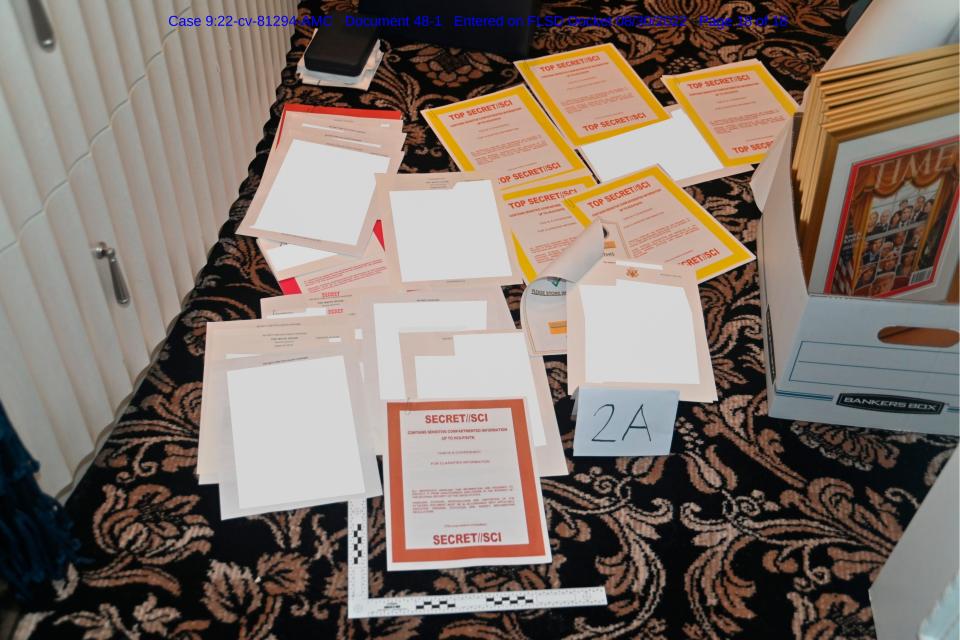
Andrew Card, who served three presidents and more than five years as chief of staff in the George W. Bush administration, said the volume and sensitivity of the records found at Mar-a-Lago bear no resemblance to the document security practiced during his time at the White House.
"I would have hoped somebody was saying very early on that there are documents not accounted for," Card said. "Where are they?"
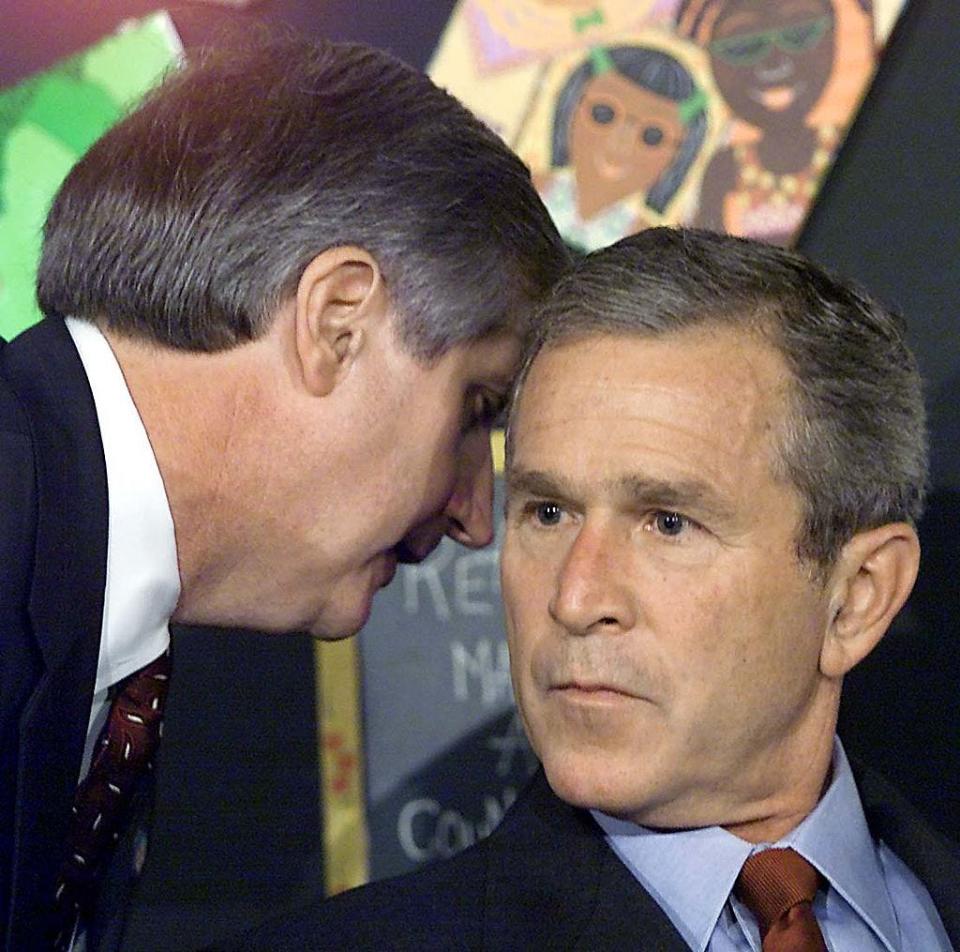
Experts say Trump's handling of documents defied protocols
Any administration's national security strategy weighs heavily on the quality and quantity of its intelligence. That's why, analysts say, there are necessary and long-established protocols for ensuring the protection of the nation's most sensitive information.
Related video: Special master, and what it means for Trump's Mar-a-Lago probe
Much of it can be viewed only in secure rooms, known in the dense vernacular of government as Sensitive Compartmented Information Facilities (SCIFS). And in those facilities, information gathered by networks of spies, electronic intercepts and other methods, are locked away in vaults, accessible only to designated officials.
More: Classified documents were mingled with magazines and clothes at Trump's Mar-a-Lago club
Tracking systems are supposed to ensure that the material always returns. Yet, in the waning days of the Trump administration those strict protocols appeared to have been inexplicably cast aside, leaving hundreds of classified records at risk. Ultimately, it was the National Archives and Records Administration's long pursuit of records that forced the issue into the public spotlight and helped prompt the Justice Department's criminal investigation.
"This appears to be totally undisciplined," Panetta said. "I suspect there wasn't anyone (in the administration) who felt they could call attention to this...There should have been people from the intelligence community to make sure a process was followed."
During Panetta's tenure as chief of staff in the Clinton administration, the document security process included a tracking system maintained in part by National Security Council staffers. Panetta said the log accounted for classified and other sensitive documents that flowed into the White House, from distribution to collection.
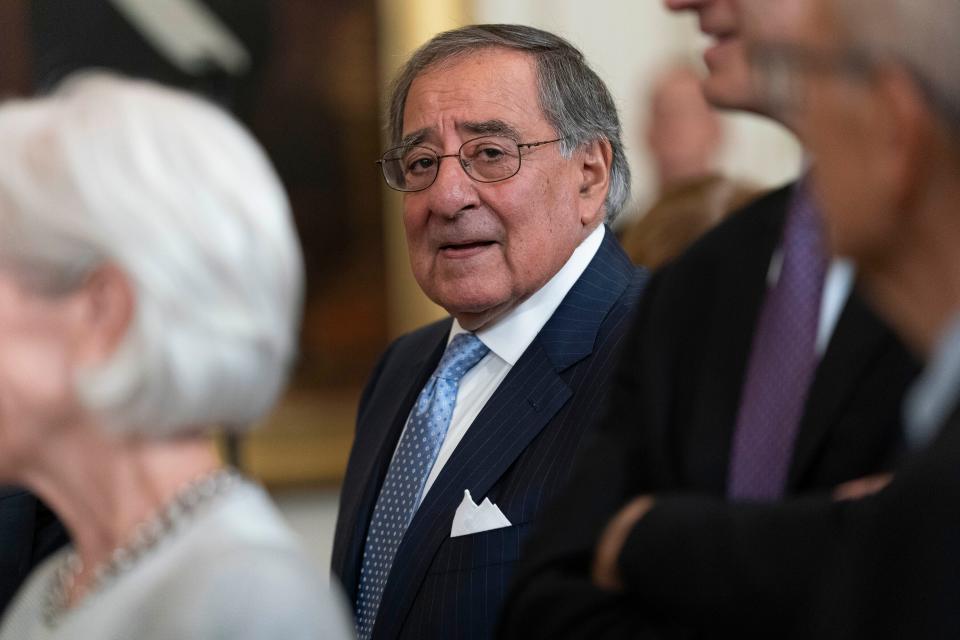
When classified material was distributed for review, including the President's Daily Brief – a summary of national security threats and sensitive analyses – it was retrieved immediately after.
More: The FBI found dozens of empty classified folders at Trump's Mar-a-Lago. What was in them?
Card described a similar system during the George W. Bush administration in which information security was overseen by both the National Security Council staff and White House staff secretary.
The former official could not recall an instance when the White House was notified that classified documents had not been accounted for.
"Never," Card said.
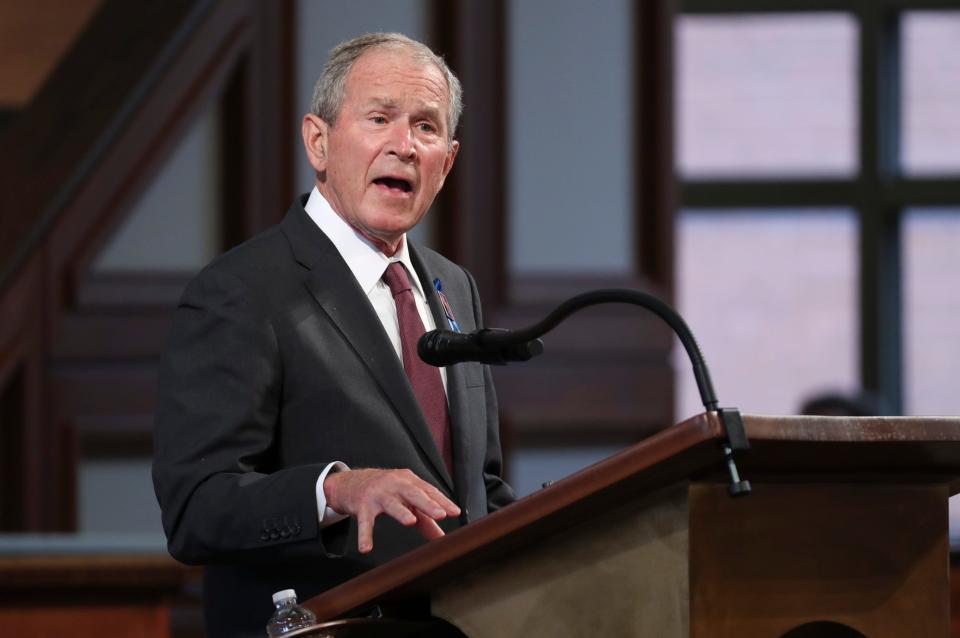
Meanwhile, the trove of records found at Mar-a-Lago, including documents designated as "HCS" – a reference to clandestine human sources and some of the government's most guarded information – is continuing to sound alarms throughout the U.S. intelligence community.
This week, The Washington Post reported yet another startling discovery among the roughly 100 classified records seized during the Aug. 8 search of Trump's property: a document outlining the nuclear capabilities of an unidentified foreign government.
"I regard this is as failure by the individuals who should have taken steps to secure that material" before it left Washington, Panetta said.
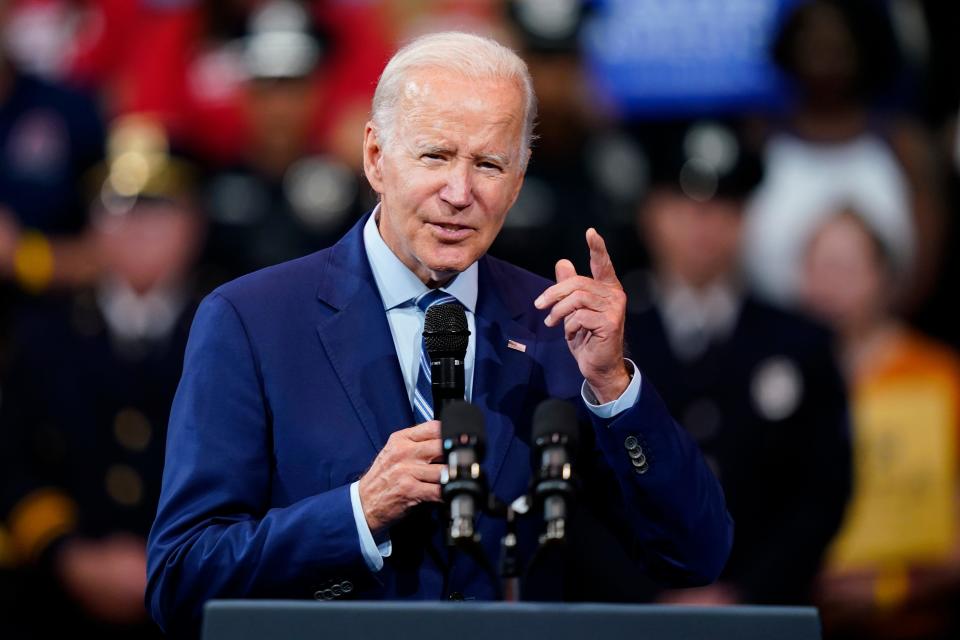
Biden: 'I read it; I lock it back up'
As troubling disclosures continued to emerge from Trump's Mar-a-Lago resort, his successor maintained that strict protocols were once again governing information security in the Biden White House.
President Joe Biden told reporters last month that while he occasionally takes documents to the White House residence, including the daily brief, its access is closely controlled. The president said a military official delivers the document, which he reads in a secure room before returning it.
“I read it; I lock it back up and give it to the military,” Biden said.
More: Trump claims Mar-a-Lago documents were 'declassified.' Why experts reject that argument.
Security measures depend on what information is at stake. “It depends on the document and it depends on how secure the room is,” Biden said.
Beyond the White House, information security has traditionally required equal rigor, said David Laufman, a former CIA analyst now at law firm Wiggin and Dana LLP. When Laufman headed the counter-intelligence section at the Justice Department the whole suite of offices was designated as a SCIF.
“Even there, we had to have safes within a SCIF in which code-word material or more sensitive information was locked up," Laufman said.
More: What is a special master? Court appointee to review documents Trump stored at Mar-a-Lago.
When copies of documents were delivered to his office, they had to be logged in and accounted for, he said.
“You get constant reinforcement training about how to handle classified information," Laufman said. "It’s a culture of compliance with the rules governing the handling of classified information that is drilled into you if you are a government official in a job that involves access to classified information."
Laufman said there probably wasn't much staffers could do to prevent a president from bringing highly sensitive documents home with him. But at the end of an administration, the White House Counsel's Office traditionally works with intelligence agencies to return or destroy sensitive documents and with the National Archives to store non-classified records.
“In an ordinary transition, there is careful effort by counsel and other White House officials to make sure that no classified information winds up in places it’s not supposed to be," Laufman said.
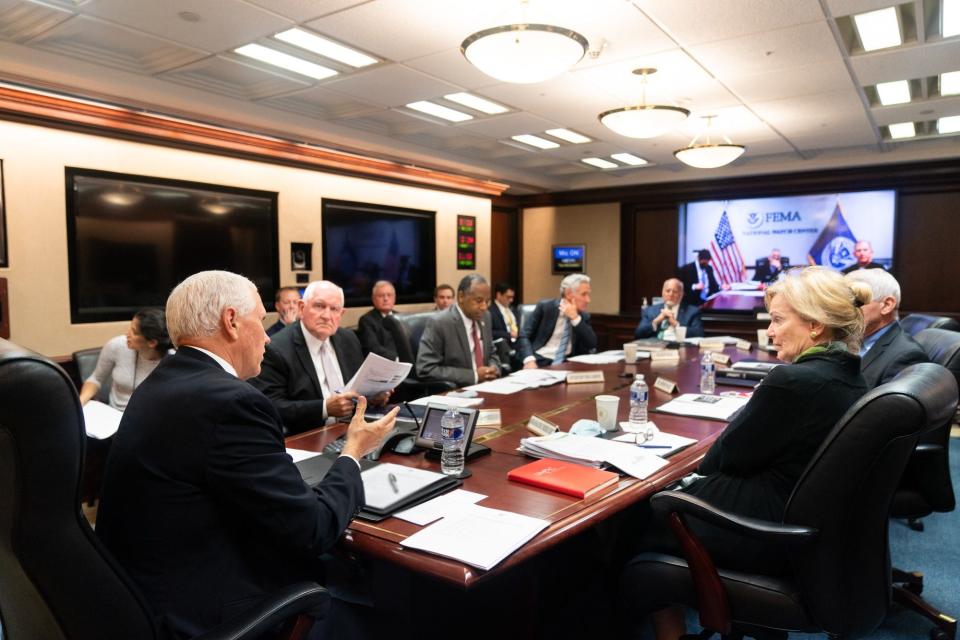
Larry Pfeiffer, a 32-year U.S. intelligence official who was the senior director of the White House Situation Room and chief of staff to then-CIA Director Michael Hayden, said he was “horrified” by the FBI photo of classified documents recovered from Trump's office in Mar-a-Lago because it showed that some of the documents were among the very most classified in the entire U.S. government.
So “above top secret” were some of the documents, Pfeiffer said, that they required being kept not only in a SCIF, but in a heavy-duty safe within a SCIF where only people specifically authorized to look at them could have access.
“That stuff is restricted to just a handful of people. We're talking low double digits probably,” said Pfeiffer, who left government in 2013 and now directs the Michael V. Hayden Center for Intelligence, Policy, and International Security at George Mason University.
“If that was me, I wouldn't have the luxury of sitting at a golf resort somewhere talking to lawyers, having lawyers file motions. I'd be doing all that from a jail cell somewhere,” Pfeiffer said. “And it wouldn't have been two years after I left office or retired; it would have been almost from the moment they discovered that maybe I still had some documents sitting around in my basement."
Apart from the potential legal jeopardy, Pfeiffer said the possible damage to the intelligence community is profound.
“I worry greatly about the harm that could have come to intelligence sources and methods, to the lives and well-being of our intelligence officers, to all the hard work that people have put in over years to cultivate sources and having that be just so capriciously disregarded,” Pfeiffer said. “And to have that all done by the president of the United States just makes it even worse.”
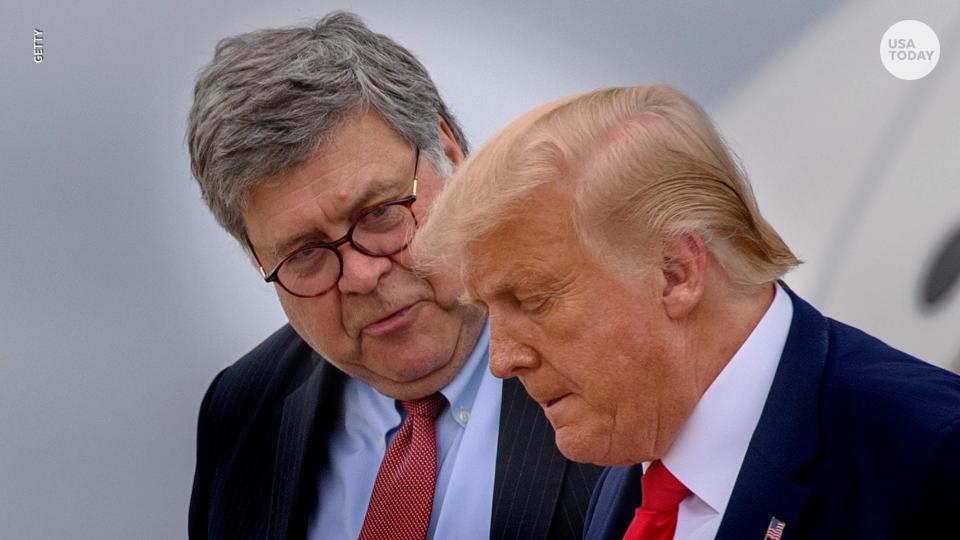
Bill Barr: 'No justification' for Trump to hold onto classified documents
Trump has never explained why the documents remained in his possession and were later transported to Florida, other than to suggest that he had declassified them before leaving office.
The claim has drawn increasing skepticism, including from his own former attorney general, Bill Barr, who said there was "no justification" for Trump to have retained the material.
Rather than address the potential risk now being assessed by U.S. intelligence officials, Trump has questioned the authenticity of a photograph included in court documents showing how the highly sensitive documents had been mingled with the former president's personal effects.
One former Trump press secretary, Stephanie Grisham, told USA TODAY it was Trump who was acting unprofessional in his handling of classified documents – whether in the White House, on overseas travel or anywhere else.
“I saw him mishandle presidential records” a lot, she said, including ripping some up and putting others in his jacket pocket in the presence of staffers without the security clearance to see them.
Either he had no clue, she said, or didn’t care, even though she said it posed a potential national security threat.
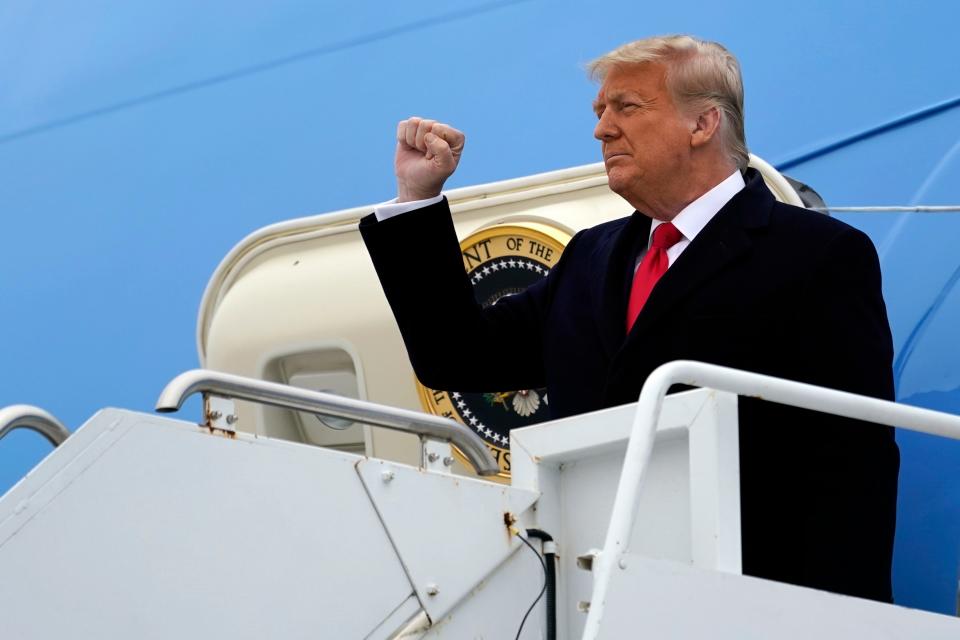
Bradley Moss, a national-security lawyer, said there was no reason for the material to be "taken out of the briefings where they were first presented to him."
“It was an insult to the rules with which every other authorized holder of classified information has to comply," he said.
Sharon Squassoni, who specialized in nuclear arms control and security policy while working at the State Department and is now a research professor at George Washington University, said some of the strictest rules for handling sensitive information extended to officials traveling overseas.
In those cases, classified documents were carried in a canvass briefcase with a zipper lock.
With a diplomatic passport, officials could prevent scanning the bag through imaging machinery, she said. Upon arrival in the foreign country, the official would go directly to the embassy to secure the records, she said.
“There is a chain of custody because you don’t want them falling into the wrong hands,” Squassoni said. “The idea that you could take all this stuff and put it in boxes and take it to Mar-a-Lago goes against probably every security regulation that we have.”
This article originally appeared on USA TODAY: Trump classified documents: Breach reveals disregard for protocols

